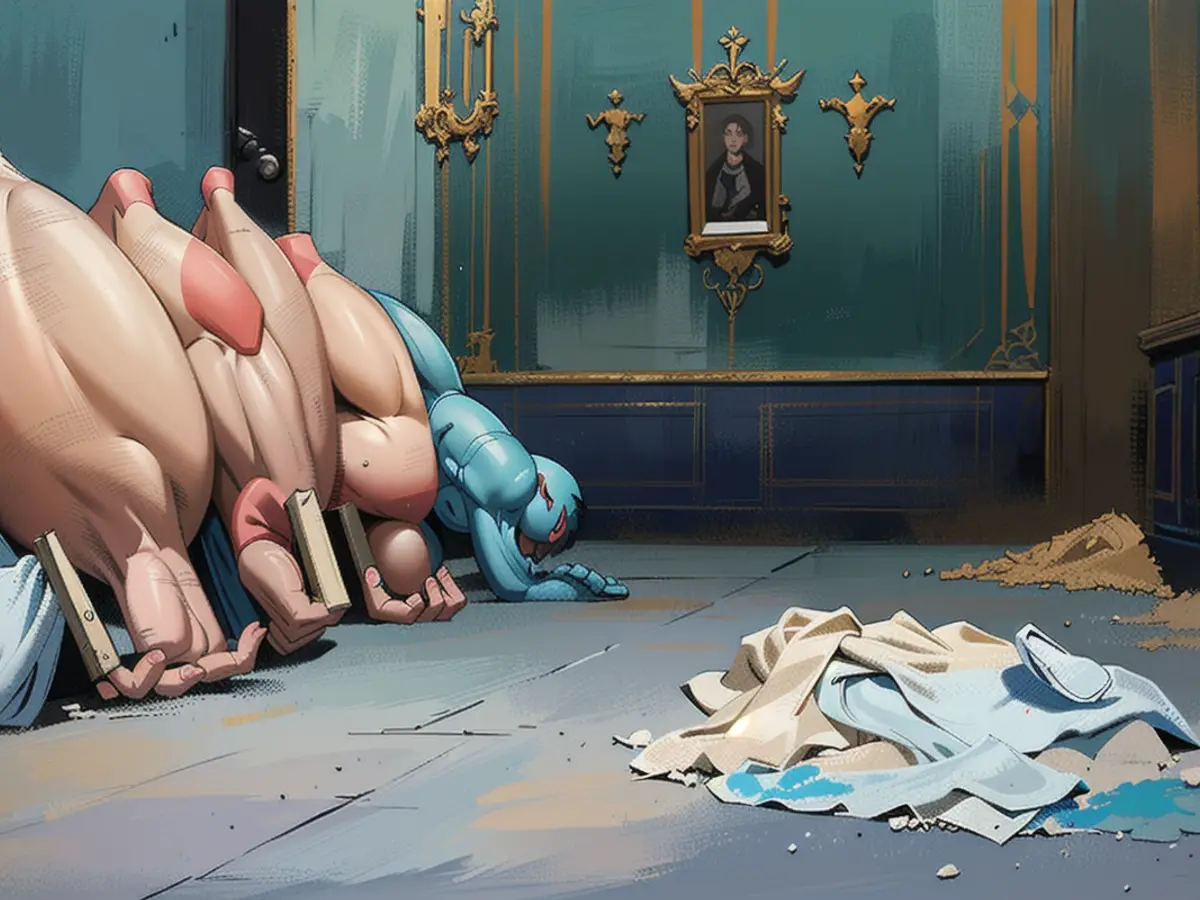Archeologists discover sacrarium in Pompeii.
Throughout the 18th century, many archaeologists have explored Pompeii in Italy, and yet, this buried city keeps revealing its secrets. A current excavation unearthed a vibrantly blue-painted room believed to be used for religious rituals in ancient Pompeii.
This beautifully blue-painted room for religious ceremonies lies in the heart of the submerged Roman city of Pompeii. It appears to be a type of shrine, or a household altar, where sacred objects were kept, as stated by the Archaeological Park.
Inside this grand room, researchers have uncovered several amphorae, bronze dishes, and a mound of oyster shells, potentially used as building material. The walls of the chamber are adorned with blue frescoes, which depict female figures holding various objects. These females are thought to symbolize the Horae, or Greek Goddesses representing the seasons. Additional figures bear items connected to agriculture and shepherding.
The researchers assert that the color blue in Pompeii's frescoes is rare, as it was only used in exceptionally ornate rooms, implying that the discovered room held significant importance. The submerged Roman city at the foot of Vesuvius is still yielding remarkable findings.
Dating back to 79 AD, Pompeii was engulfed in ash, mud, and lava due to several volcanic eruptions. It was rediscovered in the 18th century, and its well-preserved remains of death and disaster offer an insight into life during that period. Now, the park is one of Italy's most popular tourist destinations.
Read also:
The vibrant blue frescoes in this ancient shrine are a testament to the advanced artistic skills of the Roman Empire during its historical period. This excavation site in Pompeii, Italy, is providing valuable insights into the religious practices and daily life during the time of the Roman Empire. The uncovered amphorae and bronze dishes offer clues about the dietary habits of the inhabitants of Pompeii during that era.







